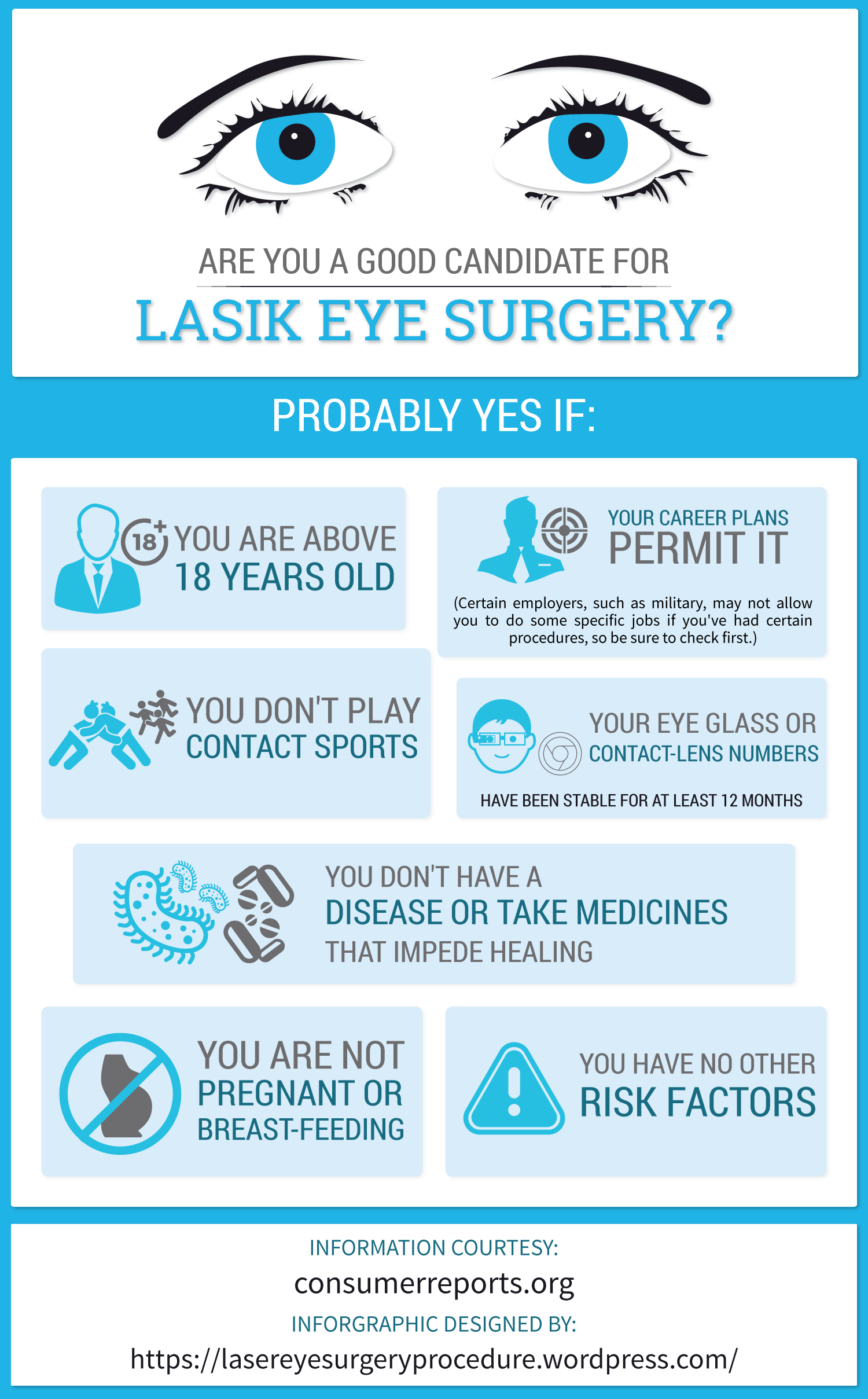Is SMILE Eye Surgical Procedure Right For You? Secret Considerations And Insights
Is SMILE Eye Surgical Procedure Right For You? Secret Considerations And Insights
Blog Article
Write-Up By-Lundgreen Patel
If you're pondering SMILE eye surgical treatment, ponder this: are you prepared to accept possible aesthetic liberty, or does the idea of any dangers make you wait? Your choice will certainly depend upon a cautious equilibrium of weighing the benefits versus the unpredictabilities. It's important to delve much deeper into the nuances of SMILE surgical treatment to make an educated choice that aligns with your aesthetic goals.
Comprehending SMILE Eye Surgery
When taking into consideration SMILE Eye Surgery, it is essential to comprehend the treatment and its advantages. visit this link , which represents Small Laceration Lenticule Extraction, is a minimally intrusive laser eye surgical treatment that remedies common vision issues like nearsightedness (nearsightedness).
During the procedure, your eye surgeon will use a femtosecond laser to create a little laceration in your cornea. Through this laceration, a tiny disc of cells called a lenticule is gotten rid of, reshaping the cornea and remedying your vision.
One of the crucial benefits of SMILE Eye Surgical treatment is its fast healing time. Numerous individuals experience boosted vision within a day or more after the treatment, with minimal discomfort.
In addition, SMILE is understood for its high success rate in offering long-term vision modification. Unlike LASIK, SMILE doesn't call for the production of a flap in the cornea, reducing the risk of complications and enabling an extra steady corneal structure post-surgery.
Recognizing the procedure and its benefits is essential when considering SMILE Eye Surgery for vision adjustment.
Pros and Cons of SMILE
Taking Into Consideration SMILE Eye Surgical treatment for vision improvement comes with different benefits and possible drawbacks.
One of the primary pros of SMILE is its minimally invasive nature, as it includes a little cut and commonly causes quick recuperation times. The procedure is likewise understood for creating minimal pain and dry eye signs and symptoms post-surgery compared to various other vision correction methods. Additionally, SMILE has actually been shown to give exceptional aesthetic end results, with many patients achieving 20/20 vision or far better.
On the other hand, a possible con of SMILE is that it might not be suitable for people with serious refractive errors, as the treatment array is somewhat restricted compared to LASIK. Another consideration is that the knowing contour for doctors applying SMILE can influence the availability of seasoned suppliers in certain locations.
https://telegra.ph/Improve-Your-Recuperation-Strategies-With-Important-Referrals-For-Cataract-Surgery-Focused-On-Achieving-The-Most-Effective-Heali-12-06 is essential to weigh these pros and cons very carefully when deciding if SMILE is the best choice for your vision correction needs.
Establishing Qualification for SMILE
To determine if you're qualified for SMILE eye surgical treatment, your ophthalmologist will perform an extensive analysis of your eye wellness and vision requirements. During this evaluation, aspects such as the security of your vision prescription, the thickness of your cornea, and the overall wellness of your eyes will be examined.
Generally, candidates for SMILE are over 22 years of ages, have a steady vision prescription for at the very least a year, and have healthy corneas without conditions like keratoconus.
Your eye doctor will certainly also consider your general eye wellness, any kind of existing eye conditions, and your lifestyle needs to establish if SMILE is the appropriate selection for you. It's essential to connect any kind of details visual needs or concerns you may have during this assessment to make sure that the treatment straightens with your assumptions.
If you aren't qualified for SMILE, your eye doctor may recommend different vision modification options that much better suit your individual requirements and eye health and wellness status.
Conclusion
Ultimately, deciding whether SMILE eye surgical treatment is right for you needs cautious factor to consider of your specific eye wellness and aesthetic demands. Seek advice from your optometrist to establish your qualification for the procedure and weigh the possible benefits and downsides. Remember to connect any issues or concerns you may have during the evaluation process to make an enlightened choice concerning your vision modification choices.
